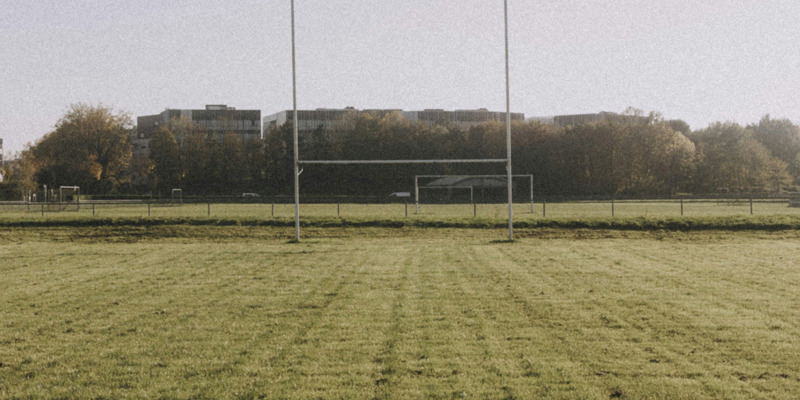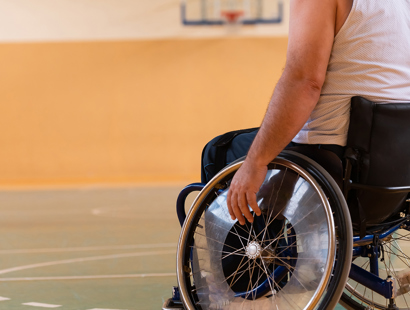
The High Court sets a new precedent for sporting injury claims in rugby liability decision
The High Court has found in favour of the claimant, Dani Czernuska, in a personal injury claim after a tackle in an amateur rugby match left her paraplegic. Many rugby players and fans will be wondering what impact this could have on the sport.
Circumstances of the case
The claimant and the defendant, Natasha King, were playing on opposing teams at the 'developmental' level of an amateur rugby league match. The claimant’s team was newly formed and mostly made up of players who had only played one or two games of rugby before. The defendant had been playing rugby for 8 years and had previously reached a high level in the league.
During a ruck, the claimant was bent over, reaching down to pick up the ball (importantly for the Court she at no point touched the ball) when the defendant leant over the claimant, grasped her thighs, put her entire bodyweight on the claimant’s back, and forced her to the ground. The claimant was immediately left with a spinal fracture.
The Court found that the tackle was not an error of judgement but was intentional and was “committed without concern for the claimant’s safety”.
The Court noted that the defendant did not try to compete for the ball as would have been allowed, but went straight for the claimant before she was ever in possession. According to witnesses, the defendant was getting increasingly frustrated throughout the match at her team’s lack of success and as the judge said, “the red mist had metaphorically descended over the defendant’s eyes”. She was heard saying to other players that she was going to 'break' and 'smash' the claimant during the game.
The standard for negligence in sporting claims
The Court recognised in this case, as they have with many other sport-related claims, that injuries sustained in rugby and other sports are not uncommon and, to a degree, players consent to the risk of injury. However, Mr Justice Spencer has made it clear in this case that “sport is not exempt from, or immune to, the law of negligence”.
So what exactly does this mean for players and referees? The defendant argued that a degree of recklessness had to be proved for her to be found liable. This approach was adopted in the case Blake v Galloway, where two young boys were playing by throwing wood chippings at each other and one boy got injured. The Court found that the intention here was informal play and so there was no expectation of any skill to be exercised. Therefore the standard for liability was conduct amounting to recklessness.
Mr Justice Spencer took a different approach from this case and instead used a case run by Russell-Cooke’s Terry Lee, Smoldon v Whitworth, which was a claim against a rugby referee. The approach taken by the Court here was that the referee owed a duty of care that was appropriate in all the circumstances.
In this case, the Court found that the circumstances included the defendant’s level of experience compared to the other players, her size and weight, previous incidents (the defendant had broken someone’s arm in an earlier game), that the tackle was illegal within the laws of rugby, and finally that the defendant was seeking revenge against the claimant personally.
What can we take from this?
Any avid rugby fans or players might like to note some key takeaways that will hopefully persuade you that the game of rugby is not over:
- The Court was clear that errors of judgement, oversight, or lapse in attention will not amount to negligence; something more serious is required.
- The fact that the tackle was illegal within the laws of rugby did not in itself mean that the defendant was negligent. It was only one factor amongst a multitude of circumstances which were taken into account.
- Although the Court said that the standard of recklessness was not the correct standard, the judge also noted that, if it was, the defendant’s behaviour would have reached that standard.
This case sets an interesting precedent that players do not automatically consent to injuries as soon as they enter the playing field. However, the Court will not penalise errors in judgement or a sporting move simply on the basis that it was illegal (within the relevant sporting law).
The defendant’s behaviour here was extreme, such that the defendant's expert, a prominent rugby referee, admitted that they had only seen similar behaviour twice in their entire career.
My colleague has drawn my attention to this awful case and my thoughts are with the player who suffered life changing injury whilst playing a game she loved. From a player's perspective, having played for Surbiton Hockey Club for more than 25 years and as a Mum of a Rugby Junior player I was very interested to see how the Court dealt with the risk of injury in what are perceived generally as dangerous contact sports...
Of course you never go onto a pitch anticipating serious injury but you accept a risk within the rules of the game; in hockey we wear protection against that risk such as gum shields, shin pads, gloves, hockey face masks, in rugby the same applies, gum shields and scrum hats are put on to protect bones and heads from clashes. But when you are faced with a situation where by the 'red mist' descends and you find yourself faced with a player who is out of control then the situation becomes very dangerous, very quickly and everyone on that pitch is at risk."
As to the maxim no injury is done to one who consents; it is clear that the Courts are adopting an approach to sporting injuries that shows that they will take all the circumstances into account. This is just one step to weeding out behaviour which does not belong on the pitch.
Fortunately these situations are still rare but if you do find yourself in a situation where you need legal advice for a serious sporting injury please do not hesitate to contact Lucy Lawson in the personal injury and clinical negligence team to discuss the circumstances. We will consider cases on a no win no fee basis and will provide free initial advice.
Get in touch
If you would like to speak with a member of the team you can contact our personal injury solicitors by email, by telephone on +44 (0)20 3826 7517 or complete our enquiry form below.




